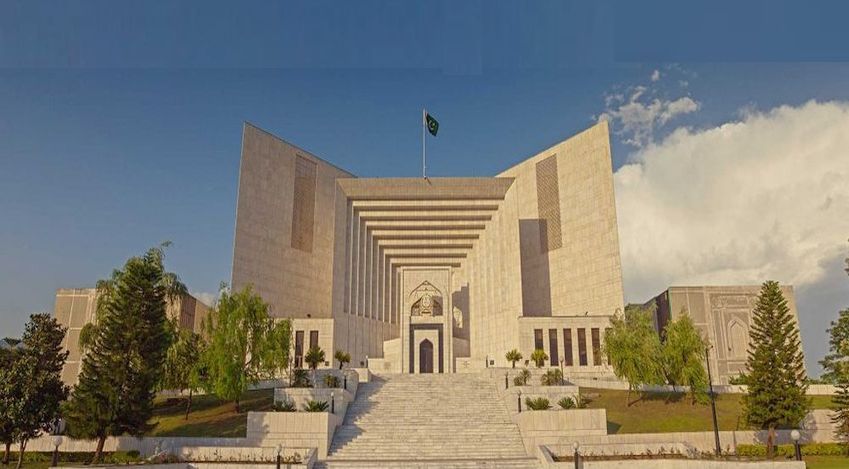Transactions made during the Pendency of Litigation are automatically subjected to the outcome of that Litigation, even if the transaction appears Valid --- Supreme Court of Pakistan
Islamabad 08-10-2024: The Supreme Court of Pakistan, in a significant ruling, dismissed the appeal of Malik Amanullah and upheld the principle of lis pendens, nullifying a property transfer made during the pendency of a legal suit. The three-member bench comprising Mr. Justice Munib Akhtar, Mr. Justice Shahid Waheed, and Ms. Justice Musarrat Hilali delivered the judgment on Civil Appeal No. 1414 of 2013, thereby affirming the concurrent findings of the Trial Court and the High Court of Balochistan, Quetta.
The case revolved around a dispute over a 5141 sq. ft. piece of immovable property in Quetta, originally owned by the deceased Muhammad Ibrahim. After his death, his son Abdul Fateh (Respondent No. 7) sold the property to Malik Amanullah (the appellant) through a mutation entry despite ongoing litigation initiated by Haji Muhammad Essa (Respondent No. 1) and others regarding the property’s ownership.
The Supreme Court reaffirmed the applicability of the doctrine of lis pendens as enshrined in Section 52 of the Transfer of Property Act, 1882. The Court held that a property transfer made during the pendency of a legal suit is subject to the outcome of that litigation, regardless of whether the purchaser is a bona fide buyer without notice of the dispute. In this case, the sale made to Malik Amanullah during the interim period when the suit was dismissed and before it was restored was still considered void under the principle of lis pendens.
The Court further clarified that if a suit is dismissed and subsequently restored, the restoration order relates back to the original date of filing, making any transactions during the dismissal period subject to the pending litigation.
The Supreme Court found that the cancellation of mutations by the Tehsildar without notice to the affected parties was in direct violation of Article 10-A of the Constitution of Pakistan, 1973, which guarantees the right to a fair trial and due process. Moreover, the Court noted that such actions contravened the provisions of the Land Revenue Act, 1967, which mandates proper procedure and opportunity for a hearing before making changes to land records. The position that transactions made during the pendency of litigation are automatically subjected to the outcome of that litigation, even if the transaction appears valid on the face of it.
The Supreme Court dismissed Malik Amanullah’s appeal, confirming that Respondents No. 1 to 6 are the lawful owners of the disputed property. The Court ordered the restoration of the mutations in favor of the respondents and affirmed that the appellant, despite being a bona fide purchaser, cannot claim ownership free of the litigation outcome.
This ruling underscores the importance of adhering to the principle of lis pendens and the sanctity of due process in property disputes, setting a crucial precedent for future cases involving property transactions during pending litigation.
Powered by Froala Editor








